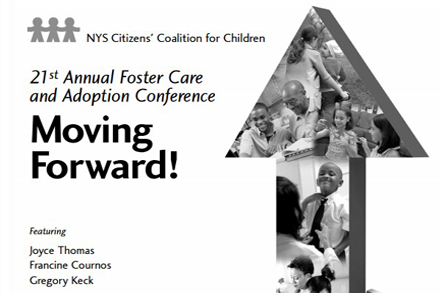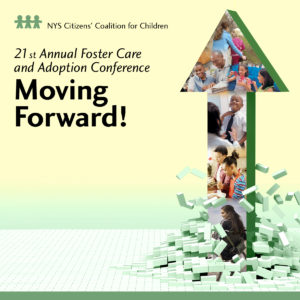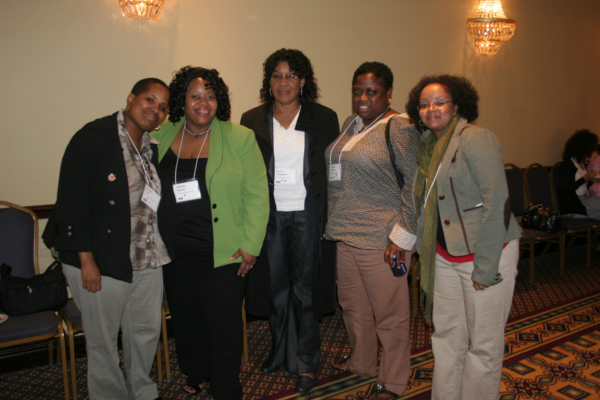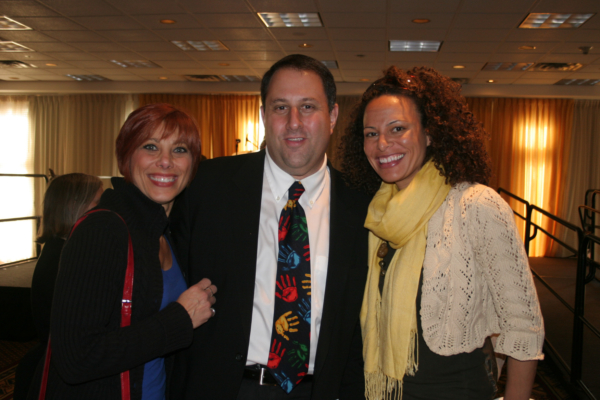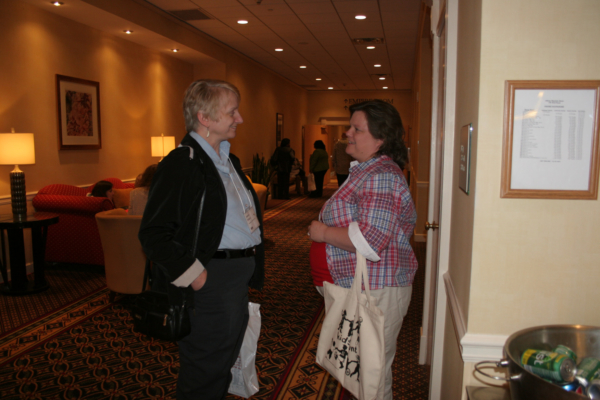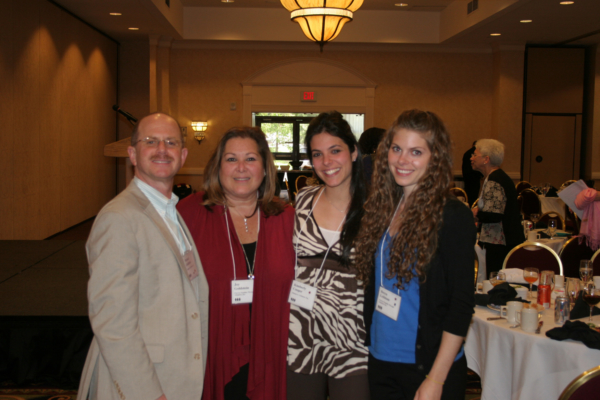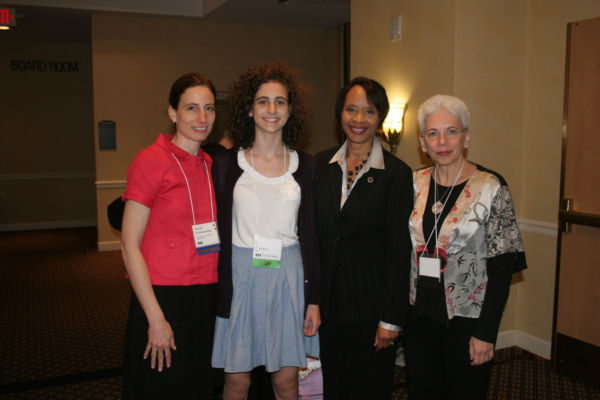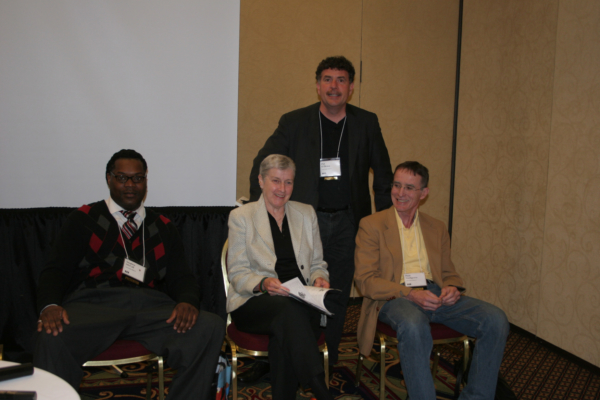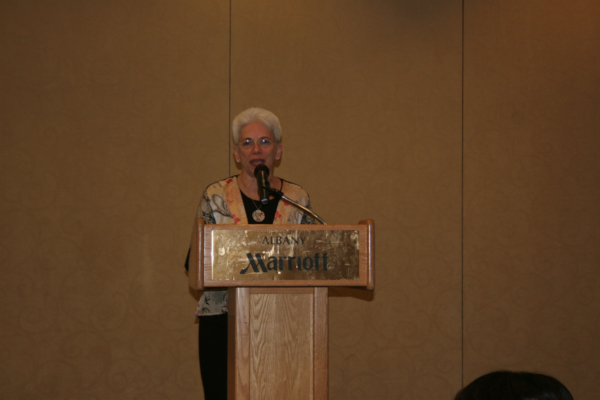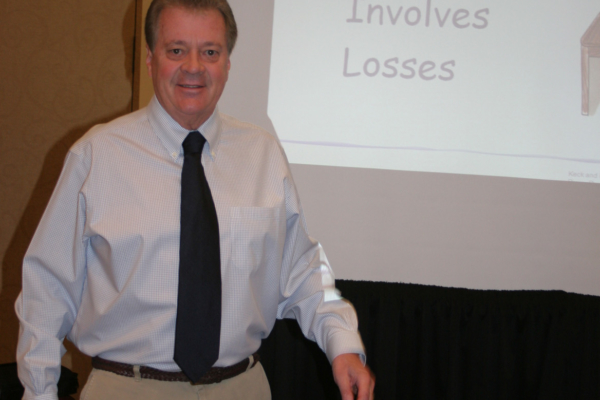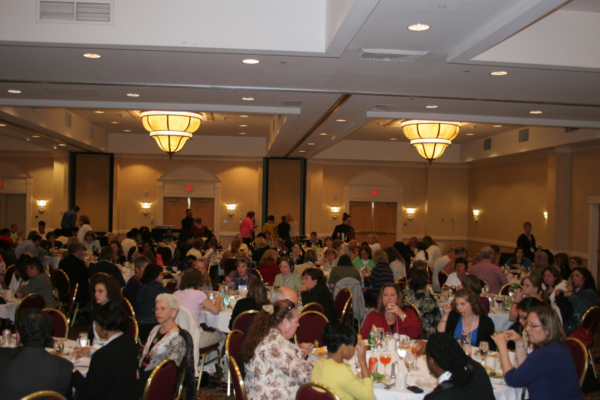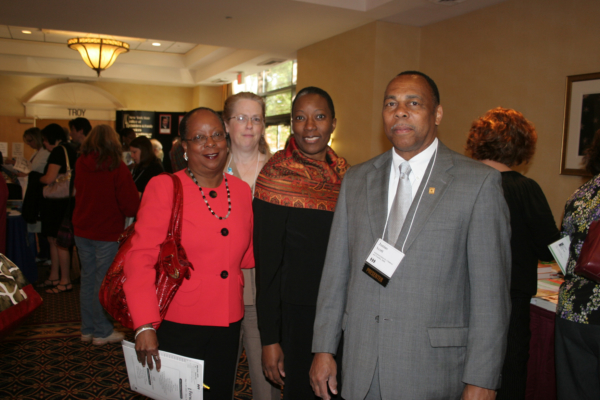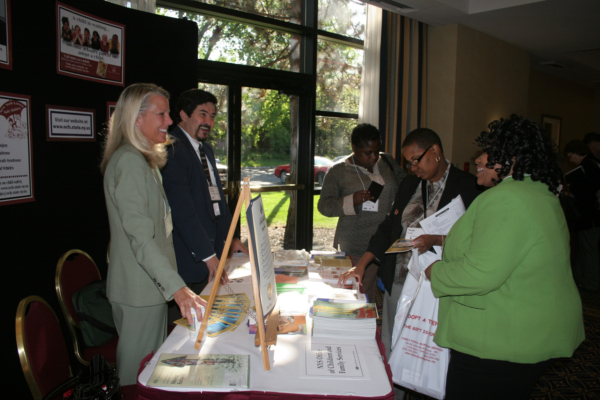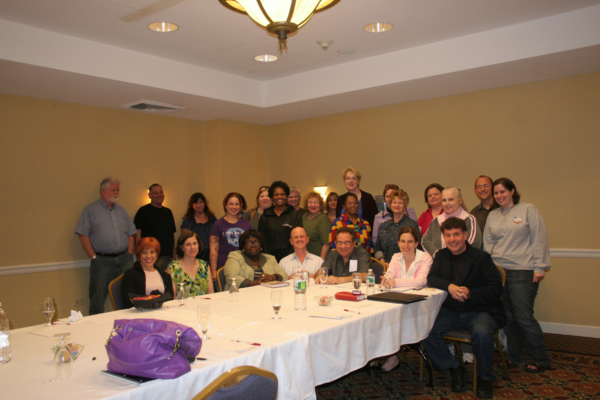21th Annual Foster Care and Adoption Conference
Friday, May 7 – Saturday, May 8, 2016 • Albany Marriott
Moving Forward!, our 21st annual statewide conference, offered the most current research and practice information for parents and professionals via dynamic, nationally-known keynote speakers and experts in child welfare and related fields in 30 different workshop presentations. Child welfare is a challenging field but one where the possibility of progress inspires us all – whether on the implementation of statewide policy to improve families’ lives or on the individual level where a child getting herself independently dressed for school can fill a parent with joy. The conference offered participants an opportunity to become current on law and policy; learn new skills and strategies to work with families and children; and network with other parents and professionals.
Additional conference features included a reception featuring Flame the Band! and the New York premiere of Living Adoption: Gay Parents Speak, a new training video for adoptive parents and the professionals who work with them.
2010 Workshops & Handouts
The following contains workshop descriptions and links to workshop handouts from the Coalition’s 2010 Foster Care and Adoption Conference . “Attend” a workshop of your choice by purchasing an audio recording from Egami A/V.
1. Medication Use and Children in Foster Care – Many children in foster care are prescribed medications for a variety of behavioral issues. Come learn about commonly prescribed medications, their possible side effects and how these medications are used. Brian Cowles
2. Rolling out the Welcome Mat to LGBT Families – Finding an agency that is truly welcoming and supportive to prospective lesbian, gay, bisexual and transgender (LGBT) parents is often a great challenge. Come learn essential steps to make policies and practices more inclusive, culturally competent and effective when working with the LGBT community. Ellen Kahn See workshop #7
3. The National Survey of Adoptive Parents – Learn about the first nationally representative survey of adoptive families across adoption types including information on the characteristics, adoption experiences, and well-being of children and their families. Sharon Vandivere and Karin Malm
4. Parent Group Cracker Barrel – 3 sessions in one! – Learn from the experts! Parent group leaders from across the state will do presentations on marketing, advocacy, member recruitment/retention and more. Marie Dolfi, Antionette Sumter Cotman, Linda Finerson, Sherry King, and Elvira Northington. (Susie Collins, moderator)
- Tips and Strategies for Marketing Support Group Events and Services(pdf)
- Growing and Engaging Parent Group Membership (pdf)
- Sample Support Group Flyer (pdf)
- How Much do You Know About Caring for African-American Hair Quiz (pdf)
- Developing A Hair Routine
- Ideas for Parent Group Events (pdf)
- Elements of Effective Advocacy (pdf)
5. A Parent for Every Child: Successes and Challenges – Learn about a new federally-funded multi-system effort to find families for at least 50 youth who reside in an OMH or OMRDD residence or an OCFS juvenile justice facility. Barriers encountered by youth and permanency resources and successes will be discussed.Michael Carroll
6. Reducing the Impact of Loss and Trauma: Part 1 – Strategies will be shared to address trauma. Attendees will also be asked what has worked for them with children in their care so that collective wisdom of the group emerges. Francine Cournos
- Workshop Powerpoint (pdf)
7. Home Assessments and Child Matching with LGBT Parents – Specific, practical suggestions will be offered to help social workers conduct non-biased, helpful, LGBT-competent home assessments, and to talk to children and youth about the potential of being placed with a same-sex couple or LGBT parent. Ellen Kahn
8. Adoption Subsidies and Tax Credits – Can an adoption subsidy increase after an adoption? What happens to the subsidy if the child leaves the home? Can foster parents claim children in their care on their taxes? Do parents have to pay taxes on adoption subsidies? Come find the answers to these questions and more from NYS and national experts. Sallie D’Asaro and Josh Kroll
9. High-tech Search and Reunion – From Facebook to blogs to websites dedicated to search – explore the pros and cons of utilizing these resources. Information will be shared by a marketing and communications consultant who was adopted. April Dinwoodie
10. Adopting from Within – How can professionals adopt youth they have worked with? Hear from parents who have done just this! Learn guidelines to make this work for agencies, prospective adoptive parents and youth. Paul Snellgrove, Iris Johnson, Mary Keane, Stephen McCall, and Susan Grundberg (Moderated by Pat O’Brien)
- Youth Homlessness (pdf)
- Unconditional Commitment (pdf)
- When you Take the P.A.R.E.N.T Out of Permanent (pdf)
- Promising Practices for Assuring Permanency for Teens(pdf)
11. Reducing the Impact of Loss and Trauma: Part 2 -Strategies will be shared to address trauma. Attendees will also be asked what has worked for them with children in their care so that collective wisdom of the group emerges. Francine Cournos
12. You Want ME, a Foster Parent, to Supervise a Visit? – Learn the benefits and basic principles of visit coaching as well as suggestions as to how to make visits more meaningful for parents and children. Erika Brunelle
13. Critical Decision-Making – When is a child ready to go home safely? When is it time to terminate parental rights? Collecting information, questions to ask, and awareness of how personal and professional histories affect the decision-making process will be discussed. Bring your own challenging situations to this workshop!Barry Chaffkin
14. Shared Parenting with a Parent who has Mental Illness – An introduction to some basic information regarding mental illness, to the processes common in families where mental illness exists, and to the needs of children and youth whose parents have a mental illness, including the need to have their parents accorded respect, and to maintain a connection with their birth families. Diana Shultz
15. Building a Bridge – Learn how to use true stories written by parents, foster parents and youth to build collaboration for the benefit of children in foster care. This train-the-trainer workshop will give you tools to use to train and support staff, foster parents and birth parents in your agency or county. Nora McCarthy
- She’s Still Your Mother (pdf)
- My Daughter’s Foster Mother is Still Part of Our Lives (pdf)
- Buy the Book – An Anthology of Stories from Rise w/ Leader’s Guides
16. Attachment-focused Intervention: Part 1 – Learn how to create nurturing therapeutic and home environments to enhance parent-child attachment. Gregory Keck
17. Health: The Foundation of an Effective Transition Plan – This session explores the impact disability, chronic illness and special health care needs have when preparing for adulthood. Strategies for supporting the development of health skills both at home and within the school-based transition plan for students with disabilities will be discussed. Michele Juda and Tina Beauparlant
- Education for Empowerment: Schools and Teens in Healthcare Transition (pdf)
- Next Steps: Transition Tips for School and Post Graduation(pdf)
18. Impact of Substance-abuse during Pregnancy on a Child – How do the use of drugs and alcohol by a pregnant parent impact a child during his lifetime? What can a parent do to remediate the effects? Elaine Schulte
19. Creating Adoption Ceremonies – Whether a child is moving into a new family or being adopted by their foster family, it is important to recognize that commitment with a ceremony and “paperwork” for the parents and child to sign. Come away with practical information to use in your work Monday morning! Maris Blechner
- Workshop Slides (pdf)
- The Adoption Covenant Ceremony
- Sample Covenant for a Parent (pdf)
- Sample Covenant for a Child (pdf)
20. Having a Voice and a Choice: Legal Options for Kin and Fictive Kin – What are the options for friends and relatives when a child is removed from his or her family? How do you make a good decision about which option is best? Margaret Burt
- All Workshop Handouts in PDF format
- See Foster Care Legal Issues for Updated Articles on Issues Addressed
21. Attachment-focused Intervention: Part 2 – Learn how to create nurturing therapeutic and home environments to enhance parent-child attachment. Gregory Keck
22. Understanding Supports and Services Administered by OMRDD – An awareness of the service delivery system, eligibility criteria and determination process, and available services to qualifying individuals is critical when preparing young adults with disabilities to fully participate in adult life in the community after high school. Mary Jo Herbert
23. Learning Disabilities: Why Doesn’t your Child Understand What You Say? What is a learning disability? How is it diagnosed and how can a parent help their child overcome challenges? Elaine Schulte
24. In-home Assessments: Supporting Children and their Foster Parents – Learn about the Westchester Institute for Human Development’s innovative program to determine a child’s needs early in a placement and develop a collaborative working relationship with the child’s foster parent. A foster parent who has participated in the process will also join the discussion. Wendy Breitner and Lisa Katz
25. Freeing a Child for Adoption I- Termination of Parental Rights – A discussion of the legal grounds for termination of parental rights including how the court proceedings work, potential suspended judgments and appeals as well as the rights of foster parents and relatives. Margaret Burt
- All TPR Workshop Handouts in PDF format
- See Foster Care Legal Issues for Updated Articles on Issues Addressed
26. Parenting Adopted Adolescents – Strategies and insights to manage tough situations in your family from this attachment expert and father of two sons adopted in adolescence. Gregory Keck
- See
articles on the Attachment and Bonding Center of Ohio website - Parenting Adopted Adolescents: Understanding and Appreciating Their Journeys
by Gregory C. Keck
27. The Adoptive Family Grows Up – A long view of the impact of adoption and the developmental stages of adoptive families. Maris Blechner
- Workshop Slides (pdf)
- Short Circuits by Heidi Holman (pdf)
- Erickson’s “Eight Stages of Man” (pdf)
- Human Development from Infancy Through Adolescence (pdf)
28. Is it Depression or a Normative Stage of Adoption? – Children who are adopted deal with issues of loss at each developmental stage. Come hear about typical child development and when grieving and depression is normative in the life of the child who is adopted. Two adults who were adopted will contribute to the discussion from their own experience. Suzanne D’Aversa
29.Five Questions to Guide Permanency Planning for Children with Special Needs – How do you move from the vision to reality? This interactive session will provide 5 Key Questions that help workers, families, youth and advocates think about achieving permanence. Real-life success stories that resulted from the diligent application of these questions will be shared. Sue Badeau
30. Freeing a Child for Adoption II- Surrenders and Adoptions – A discussion of the legal process of surrendering a foster child for adoption, including conditional surrenders as well as the process for the subsequent adoption. Margaret Burt
- Workshop Handouts in PDF format
- See Foster Care Legal Issues for Updated Articles on Issues Addressed
Make sure you sign up for the Coalition’s Newsletter to receive important updates on the upcoming Conference.
Support the Coalition though membership or donations and help us continue this important work.
Want or need more information? Contact us at info@affcny.org or call our main office at (646) 688-4321.

